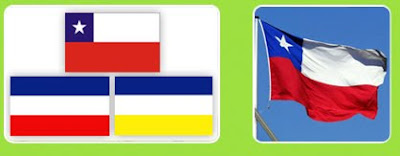The United Nations presented today the first findings from an unprecedented global conversation through which people from all over the world have been invited to help Member States shape the future development agenda that will build on the Millennium Development Goals (MDGs) after their target date at the end of 2015.
Priorities for Global Development Agenda Shaped by Unprecedented Public Outreach Effort
Fri, Mar 22, 2013
The United Nations teams in Member States are making sure that groups usually absent from participation in global processes are consulted on what they see as priorities for development of their communities.
New York, 21 March 2013 - The United Nations presented today the first findings from an unprecedented global conversation through which people from all over the world have been invited to help Member States shape the future development agenda that will build on the Millennium Development Goals (MDGs) after their target date at the end of 2015.
The snapshot report of initial findings entitled "The Global Conversation Begins" was delivered to more than 100 representatives of Member States who will negotiate the future development agenda that is likely to build on the MDGs and sustainable development agenda from Rio+20.
"We are reinventing the way decisions will be made at the global level," said Olav Kjorven, UN Assistant Secretary-General and Director of Bureau for Development Policy at UN Development Programme. "People want to have a say in determining what kind of world they are going to live in and we are providing that opportunity by using digital media as well as door-to-door interviewers."
Three emerging priorities for the future development agenda, referred to as 'the Post-2015 agenda,' can be identified:
- First, the progress on MDGs should be accelerated and adapted to contemporary challenges, such as growing inequalities within countries and the impact of globalization.
- Second, the consultations point to the need for a universal agenda to address challenges like environmental degradation, unemployment, and violence.
- Third, people want to participate, both in the agenda-setting as well as monitoring the progress in implemention of the Post-2015 framework.
"There is huge energy and appetite to engage in these global consultations," said John Hendra, Co-Chair of the UN Development Group MDG Taskforce and Deputy Executive Director of UN Women, which co-led the discussions on how to address inequalities with UNICEF. "Of course this report is only preliminary, but it's already clear that inequality is a universal concern, and in that context, people are calling for gender equality and women's rights to be at the centre of the Post-2015 agenda."
Hendra also noted that the emerging priorities are broadly consistent with the UN Task Team report Realizing the Future We Want For All.
The United Nations engaged so far more than 200,000 people from 189 countries through a mix of digital media, mobile phone applications, conferences, and paper ballot surveys in this initiative officially launched last week in New York.
The United Nations teams in Member States are making sure that groups usually absent from participation in global processes - for example, women, indigenous communities, the youth, people with disabilities - are consulted on what they see as priorities for development of their communities.
In Peru and Ecuador, the UN Country Teams are placing a particular focus on consulting communities from the Amazon region.
In Uganda, a mobile phone text message campaign has reached 17,000 people who have voiced their opinions on issues that they care about.
In Zambia, the Post-2015 agenda discussion is supported by the First Lady, Christine Kaseba Sata and celebrities from sports and arts.
There are several tracks available for people to participate in framing the next development agenda: there are almost 100 national consultations in Member States; there are eleven thematic consultations on issues such as inequalities, food security, and access to water; people continue to contribute their ideas through the World We Want 2015 web site; and people vote for six out of 16 priorities through the MY World survey.
Findings from the global conversation will be delivered to the UN Secretary-General, Heads of State and Government attending the 2013 UN General Assembly, and the Open Working Group on Sustainable Development Goals.
The "Global Conversation Begins" report will be presented to the High-level Panel on the Post-2015 Development Agenda - chaired by Prime Minister of UK David Cameron and Presidents Ellen Johnson-Sirleaf of Liberia and Susilo Yudhoyono of Indonesia - in the panel's meeting in Bali at the end of this month.
fuente. pnuma

Comentarios